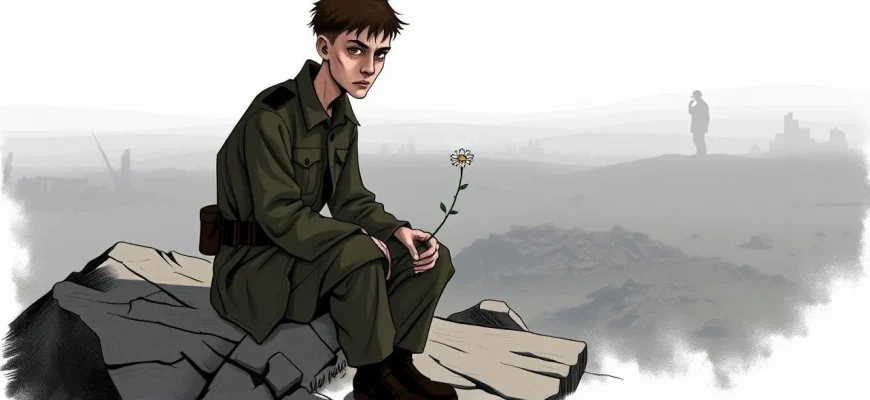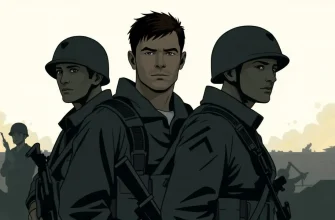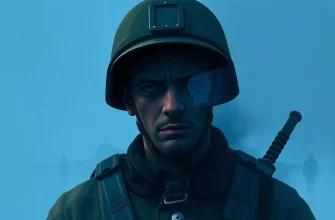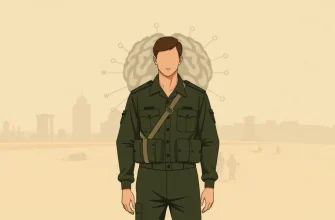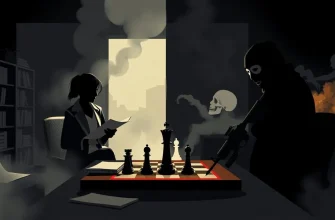War films often focus on the battles and the physical toll of combat, but there's a profound narrative that unfolds in the aftermath. This collection of 10 war films delves into the psychological recovery of soldiers, showcasing the mental battles they face post-war. These stories not only highlight the resilience of the human spirit but also offer a deeper understanding of the long-term effects of war on those who serve. From the haunting silence of shell shock to the slow, often painful journey towards healing, these films provide a poignant look at the less visible scars of war.

The Best Years of Our Lives (1946)
Description: This classic film follows three World War II veterans as they return home to face the challenges of civilian life, including PTSD, physical disabilities, and societal reintegration. It's a poignant exploration of the psychological toll of war.
Fact: The film was one of the first to address the psychological effects of war on veterans, winning seven Academy Awards, including Best Picture.
 Watch Now
Watch Now 
The Deer Hunter (1978)
Description: This film focuses on a group of friends from a small Pennsylvania steel town who are drafted to fight in Vietnam, exploring their psychological trauma and the impact on their lives post-war.
Fact: The film's depiction of Russian Roulette was controversial but became iconic, and it won five Academy Awards, including Best Picture.
 Watch Now
Watch Now 
Born on the Fourth of July (1989)
Description: Based on the true story of Ron Kovic, this film traces his journey from a patriotic Marine to a paralyzed Vietnam veteran who becomes an anti-war activist, highlighting his psychological struggles.
Fact: Tom Cruise received an Academy Award nomination for his portrayal of Kovic, and the film was directed by Oliver Stone, a Vietnam veteran himself.
 Watch Now
Watch Now 
The Hurt Locker (2008)
Description: While primarily an action film, it delves into the psychological state of a bomb disposal specialist in Iraq, showing the adrenaline addiction and the mental toll of his job.
Fact: Kathryn Bigelow became the first woman to win the Best Director Oscar for this film, which also won Best Picture.
 Watch Now
Watch Now 
Stop-Loss (2008)
Description: This film deals with the 'stop-loss' policy, where soldiers are involuntarily extended beyond their initial enlistment, focusing on the psychological impact of repeated deployments and the struggle to return to civilian life.
Fact: The film was inspired by real-life stories of soldiers facing stop-loss orders, providing a contemporary look at the psychological effects of modern warfare.
 Watch Now
Watch Now 
American Sniper (2014)
Description: Based on the life of Chris Kyle, this film portrays the psychological effects of war on a Navy SEAL sniper, focusing on his struggle with PTSD after multiple tours in Iraq.
Fact: Bradley Cooper's transformation for the role was extensive, including gaining significant muscle mass and learning to shoot like a sniper.
 Watch Now
Watch Now 
Thank You for Your Service (2017)
Description: This film follows a group of U.S. soldiers returning from Iraq who struggle to integrate back into family life and society, dealing with PTSD and the lack of support for veterans.
Fact: The film was based on the non-fiction book by David Finkel, which chronicled the lives of real soldiers post-war.
 Watch Now
Watch Now 
The Yellow Birds (2017)
Description: This film explores the bond between two young soldiers in Iraq and the psychological aftermath of their experiences, focusing on guilt, trauma, and the search for redemption.
Fact: The film is based on the novel by Kevin Powers, who served in Iraq, providing an authentic perspective on the psychological effects of war.
 Watch Now
Watch Now 
Coming Home (1978)
Description: Set during the Vietnam War, this film examines the lives of two men, one a paraplegic veteran, and the other his wife's lover, who both struggle with the emotional and psychological aftermath of war.
Fact: Jane Fonda won an Oscar for her role, and the film was noted for its realistic portrayal of the anti-war movement and the struggles of returning veterans.
 30 Days Free
30 Days Free 
The Wall (2017)
Description: A tense psychological thriller about two American soldiers pinned down by an Iraqi sniper, highlighting the mental strain of combat and the isolation of war.
Fact: The film was shot in a single location, emphasizing the claustrophobic and psychological tension of the situation.
 30 Days Free
30 Days Free 
